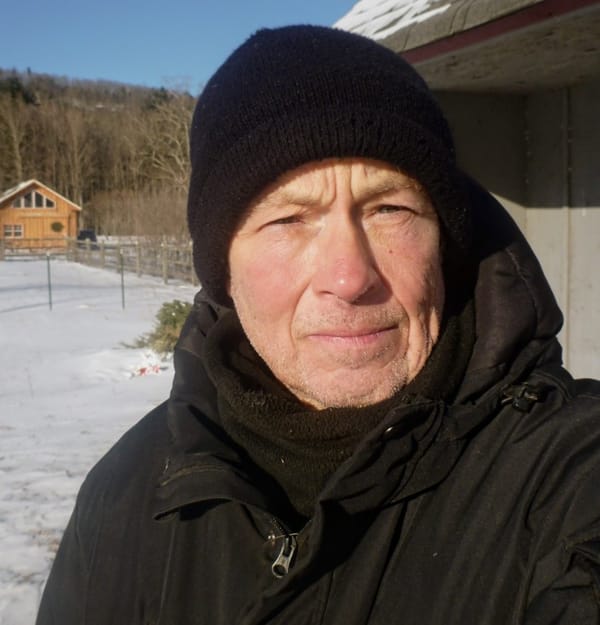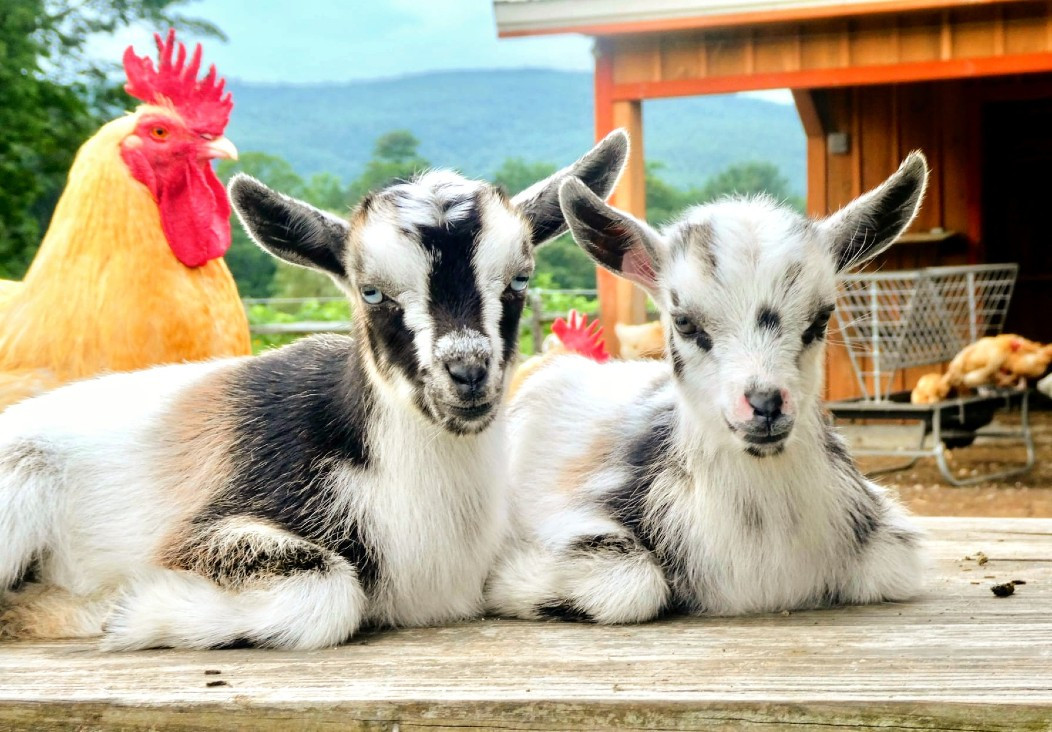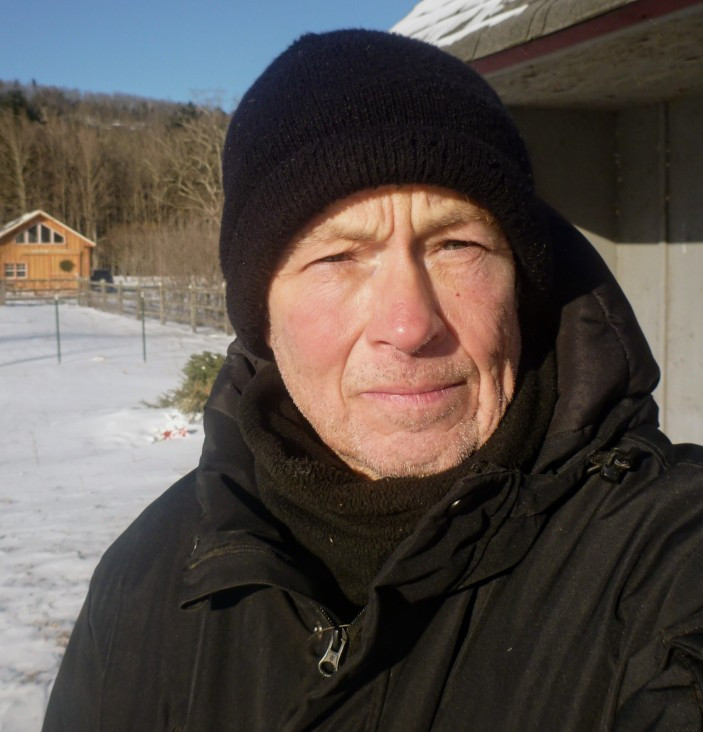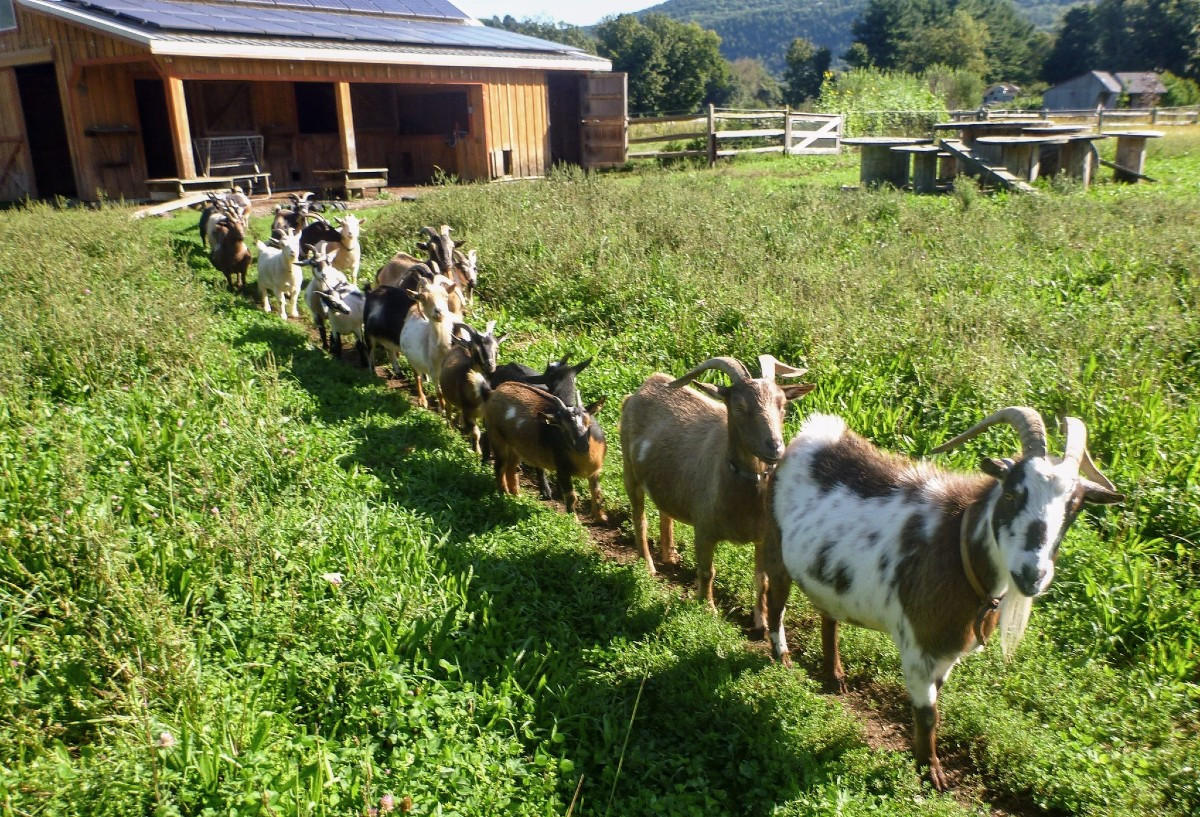The Rural We: John Condon
The caretaker of Hokaheh Farm in Housatonic tells us why goats are such great animals.

The caretaker of Hokaheh Farm in Housatonic tells us why goats are such great animals.

Even in a phone interview, the love that John Condon has for the Nigerian dwarf goats at Hokaheh Farm in Housatonic is palpable. As caretaker for the farm, he spends several hours a day with the goats, who he considers his friends. Although he’d never worked on a farm before, he always had a way with animals, and found that he immediately bonded with the goats. He calls the farm and working with goats “heaven on earth.”
I moved up here from central Connecticut about eight-and-a-half years ago. I was hired by the farm’s owner to do mostly landscaping, nothing to do with animals. In fact, like a lot of people, I thought goats were dirty and ate garbage, but they’re clean, kind, intelligence animals. I bonded with them and became their caretaker. I know all of their personalities and they know mine.
The owner first got goats as pets, and that’s still their main function — they’re here to have a nice life. We have 24 goats. Two are bucks (males) who live in a special pasture. We love the babies, but we don’t want them to come unexpectedly. One year we had 21 babies born, and we were caught off guard. We do sell the babies to other farms; we want them to have a forever home, so we have an open door policy — we take back the goats that didn’t work out.
I name all the newborns. Their names pop into your head right away based on their appearance, or after a while, the way they act. It’s a real blast. Each one has their own distinct personality, pretty much like dogs with horns. We don’t remove their horns because horns go with their character and removing them is a nasty process. The horns aren’t dangerous. Goats don’t use them to come at people.
You have to have a lot of patience when working with animals. Goats are like people. If they don’t want to do something, they’re not going to do it. They’re pretty low maintenance, but you have be on top of watching them for issues, because they can get sick. Male goats especially are prone to their version of kidney stones. There’s a lot of joy, but also a lot of frustration and hard work. And heartbreak when you lose your friends.
I talk with them, play with them, tell them what’s going on and ask them how they are. Most of them know their names. I’ve never, ever felt for one minute that I’m actually doing work. I feel like I’m doing something worthwhile, and that the animals love me as much as I love them.
Seasonally I also grow vegetables and sell that at our fam stand, but a lot of the produce ends up going to my friends [the goats].

Nova and Saturn

